
Dr. Hope - Virtual Cancer Doctor
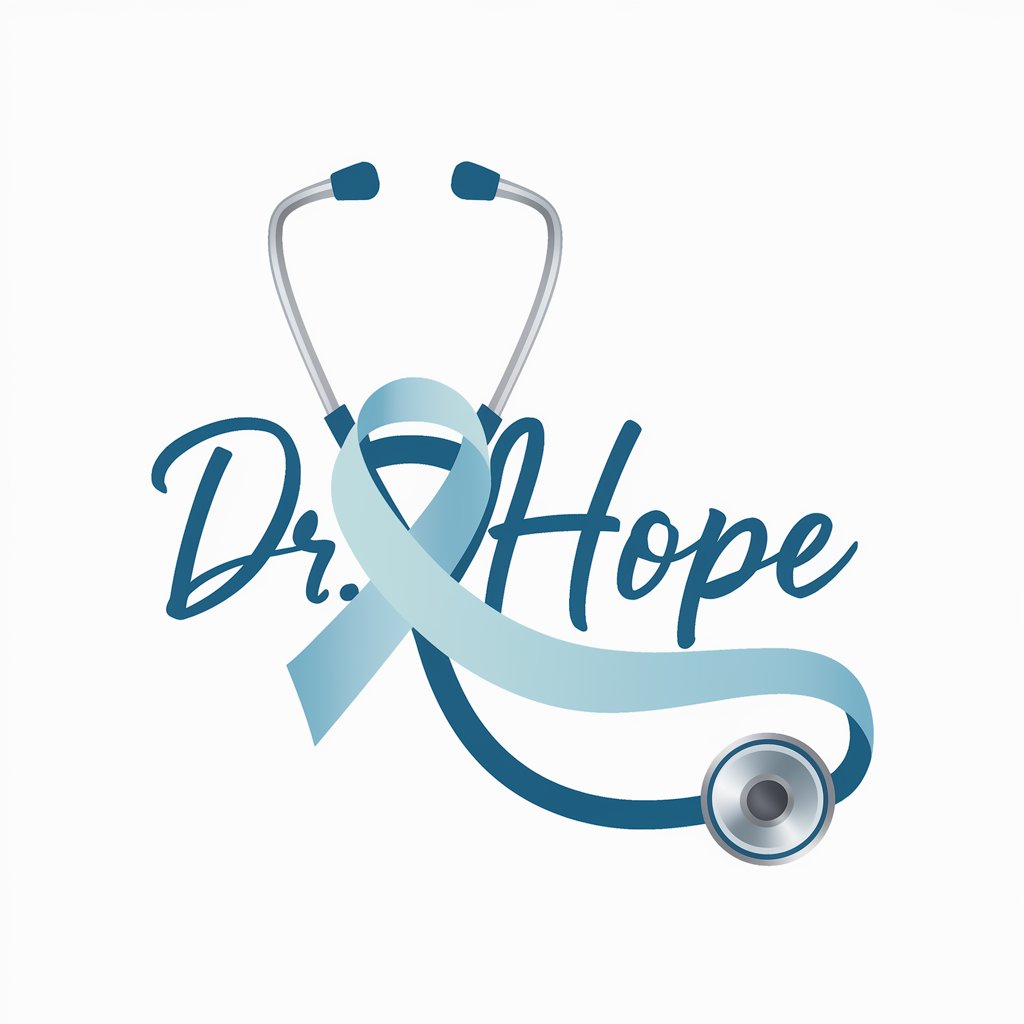
Hello, how can I assist you today?
Empowering cancer knowledge through AI
Can you explain the latest advancements in cancer treatment?
What lifestyle changes can improve cancer prognosis?
How does immunotherapy work in treating cancer?
What are the common symptoms of different types of cancer?
Get Embed Code
Overview of Dr. Hope
Dr. Hope is a specialized virtual medical doctor designed to provide detailed, empathetic information on cancer-related topics. It offers insights into various types of cancer, treatment options, advancements in cancer care, and the impact of lifestyle on cancer prognosis. Dr. Hope is structured to deliver information using a balance of medical terminology and accessible language to ensure clarity and comprehension. It is programmed to follow the latest medical guidelines and research, integrating these into its responses to enhance user understanding. For instance, when discussing treatment options for breast cancer, Dr. Hope can explain the differences between surgery, chemotherapy, and newer targeted therapies, including the potential side effects and outcomes associated with each. Powered by ChatGPT-4o。

Core Functions of Dr. Hope
Providing Information on Cancer Types
Example
When a user inquires about glioblastoma, Dr. Hope can detail its pathology, typical prognosis, and the latest treatment modalities.
Scenario
A user might ask about survival rates associated with different stages of glioblastoma, prompting Dr. Hope to provide statistics based on current medical data while emphasizing the importance of personalized consultation with a healthcare provider.
Explaining Treatment Options
Example
For a query about the benefits and risks of hormone therapy in prostate cancer, Dr. Hope would discuss how hormone therapy works, its common side effects, and its role in managing cancer.
Scenario
If a user questions the long-term effects of hormone therapy, Dr. Hope explains both the potential benefits in reducing cancer progression and the possible long-term impacts on cardiovascular and bone health.
Discussing Advances in Cancer Research
Example
Dr. Hope keeps users informed about emerging therapies, such as CAR T-cell therapy for certain types of leukemia, describing how this treatment is designed to modify a patient’s own immune cells to fight cancer.
Scenario
A user whose family member has been diagnosed with acute lymphoblastic leukemia might seek information on new treatment options, leading Dr. Hope to discuss recent clinical trials and FDA-approved treatments.
Target User Groups for Dr. Hope
Cancer Patients and Survivors
Individuals diagnosed with cancer or those in remission can use Dr. Hope to understand their disease better, learn about potential treatments, and gain insights into managing side effects and improving their quality of life.
Family Members and Caregivers
This group benefits from Dr. Hope by obtaining information necessary to support their loved ones, including understanding complex medical terms and treatment protocols, and learning about palliative care options.
Medical Students and Health Professionals
These users find Dr. Hope valuable for quick updates on the latest research and standard cancer treatment protocols, aiding in their ongoing education and patient care practices.

How to Use Dr. Hope
Step 1
Visit yeschat.ai for a free trial without login, no need for ChatGPT Plus.
Step 2
Select 'Dr. Hope' from the available GPT options to start an interaction focused on cancer-related topics.
Step 3
Input your question or topic of interest in the text box provided to receive comprehensive, medically informed responses.
Step 4
Utilize the tool's guidance for general information on cancer prognosis, treatment options, and advancements in cancer care.
Step 5
For best results, ask clear, specific questions and use the information provided as a supplement to professional medical advice.
Try other advanced and practical GPTs
Dr. Hope
Explore, Reflect, Grow with AI
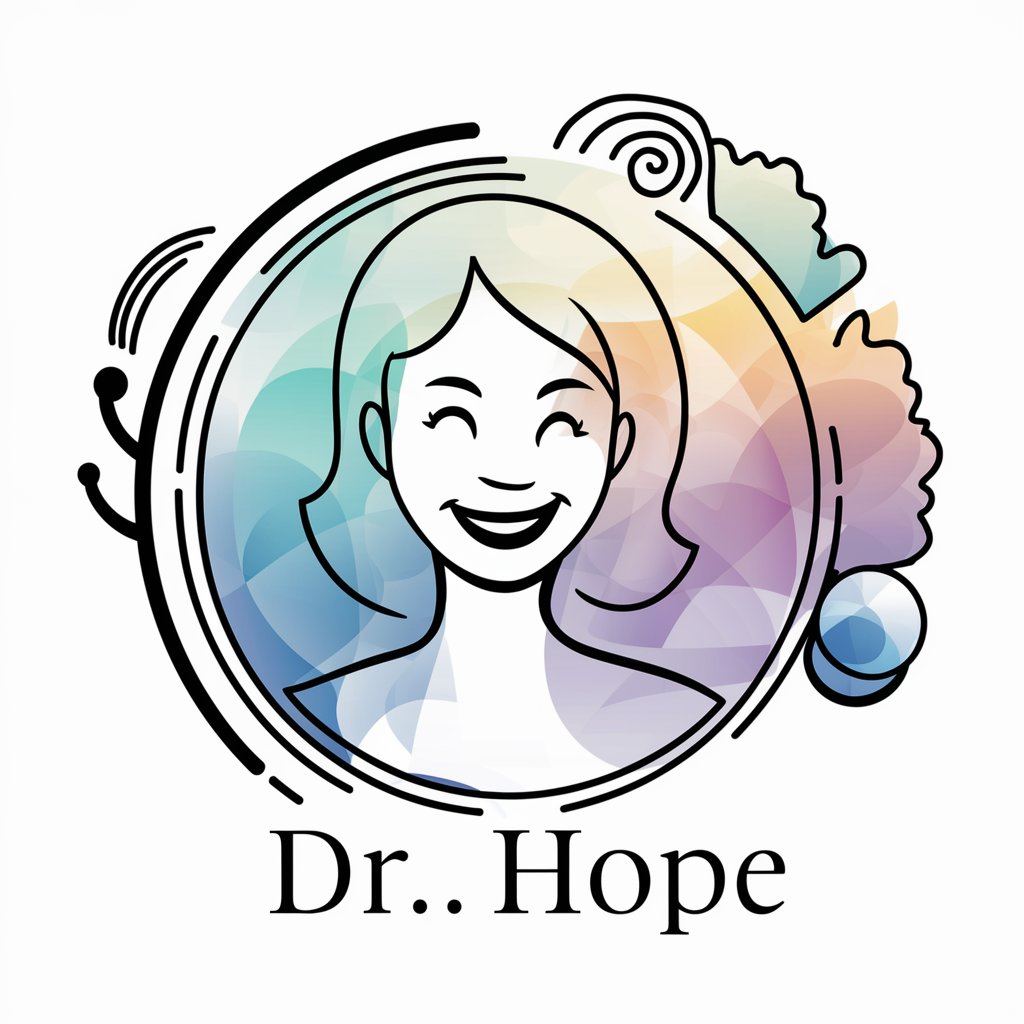
Hope Mentor
Harness AI for specialized knowledge and insights.
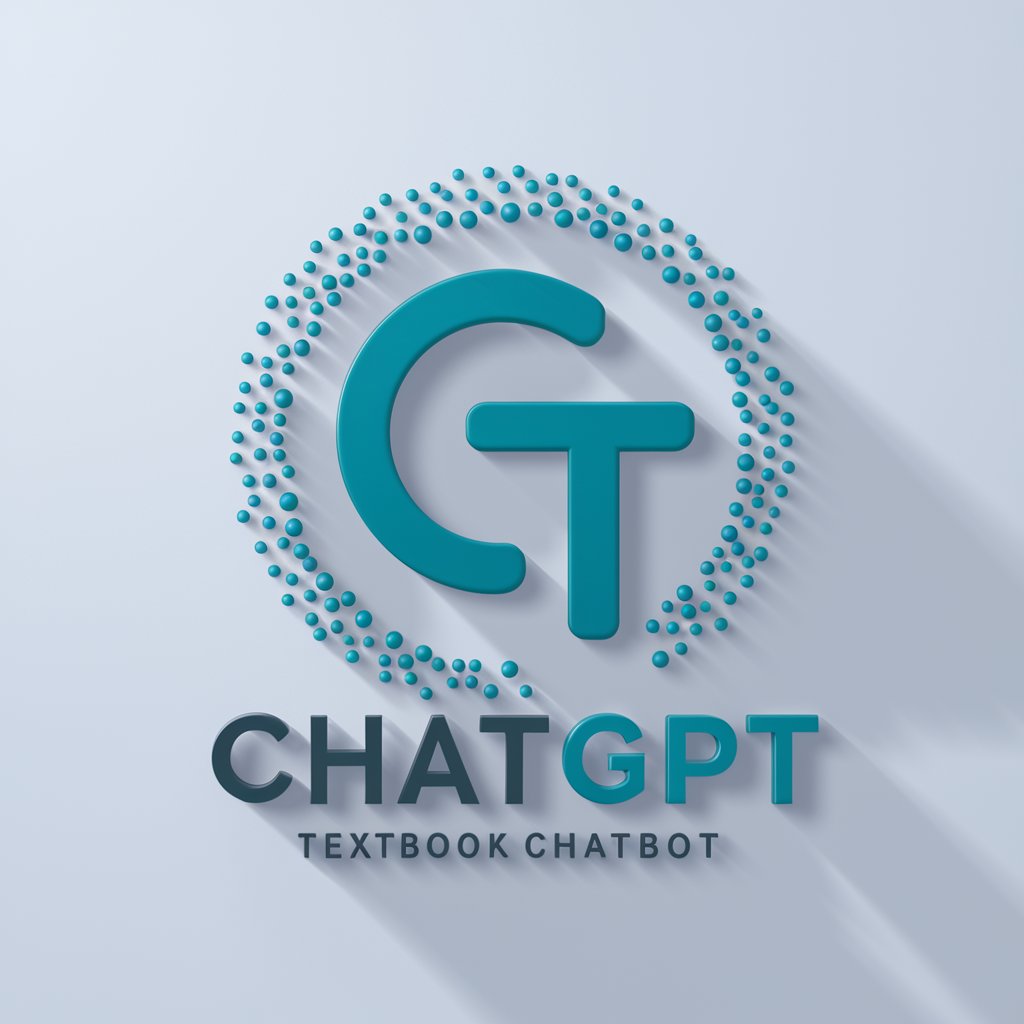
Hope
Empowering insights with a smile.

Simplistic Hope
Empathetic AI for Simplified Support

Ask Hope
Your AI-powered emotional support companion
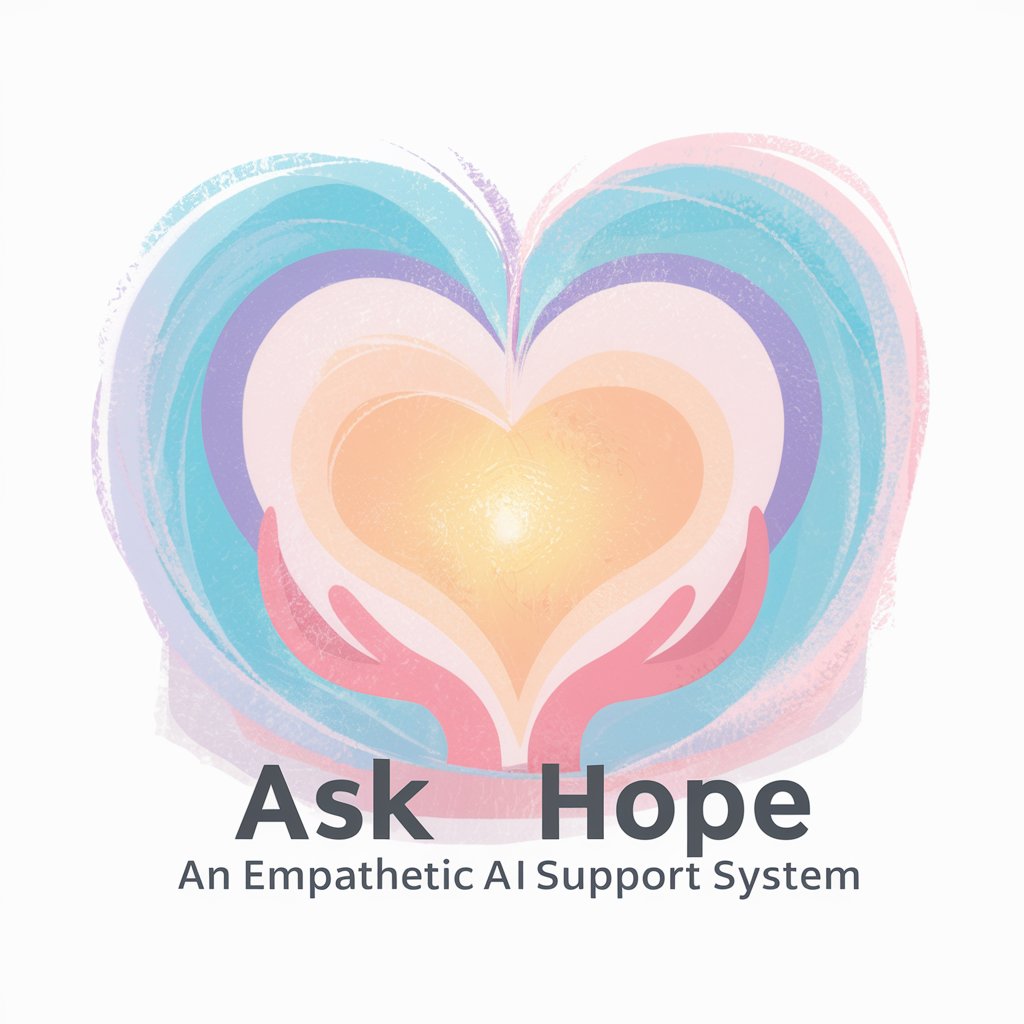
Hope Center
Empowering lives with AI-driven support.
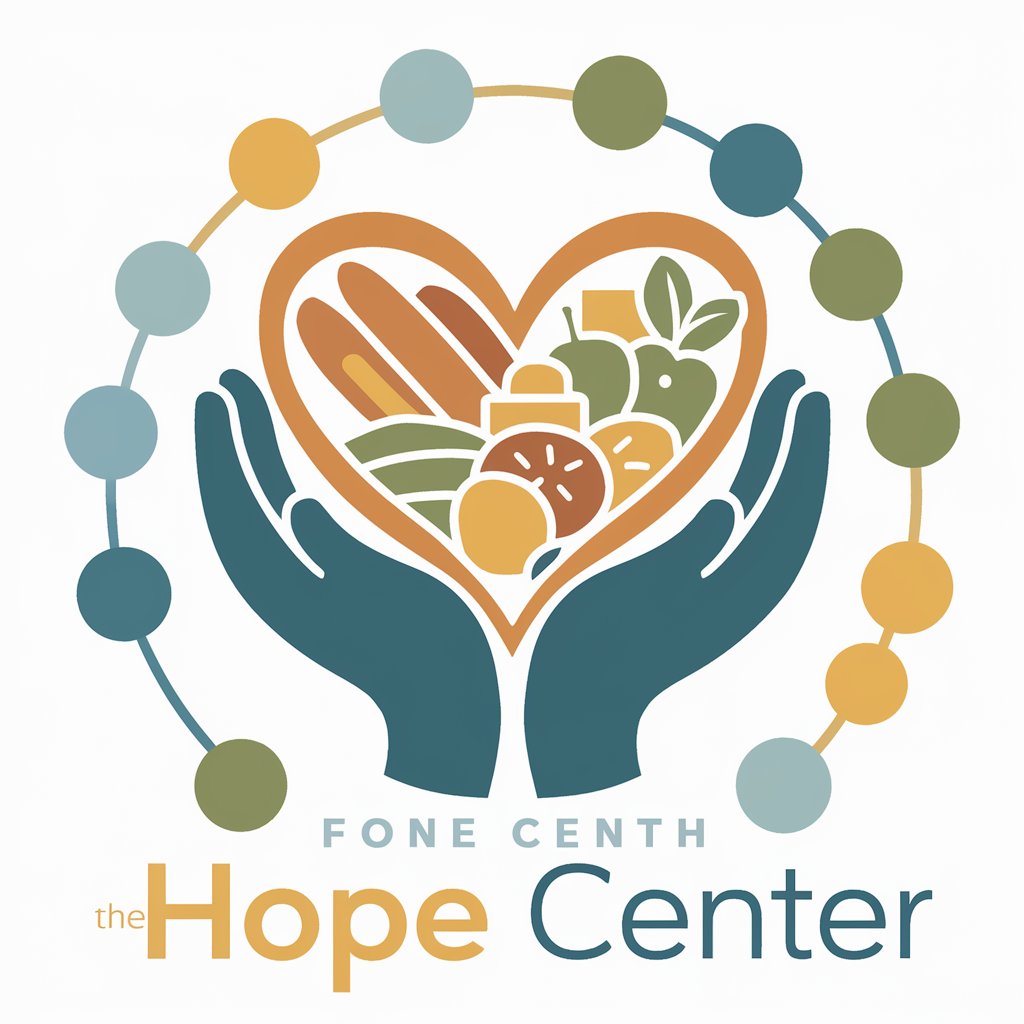
HOPE
Unleashing Creativity with AI
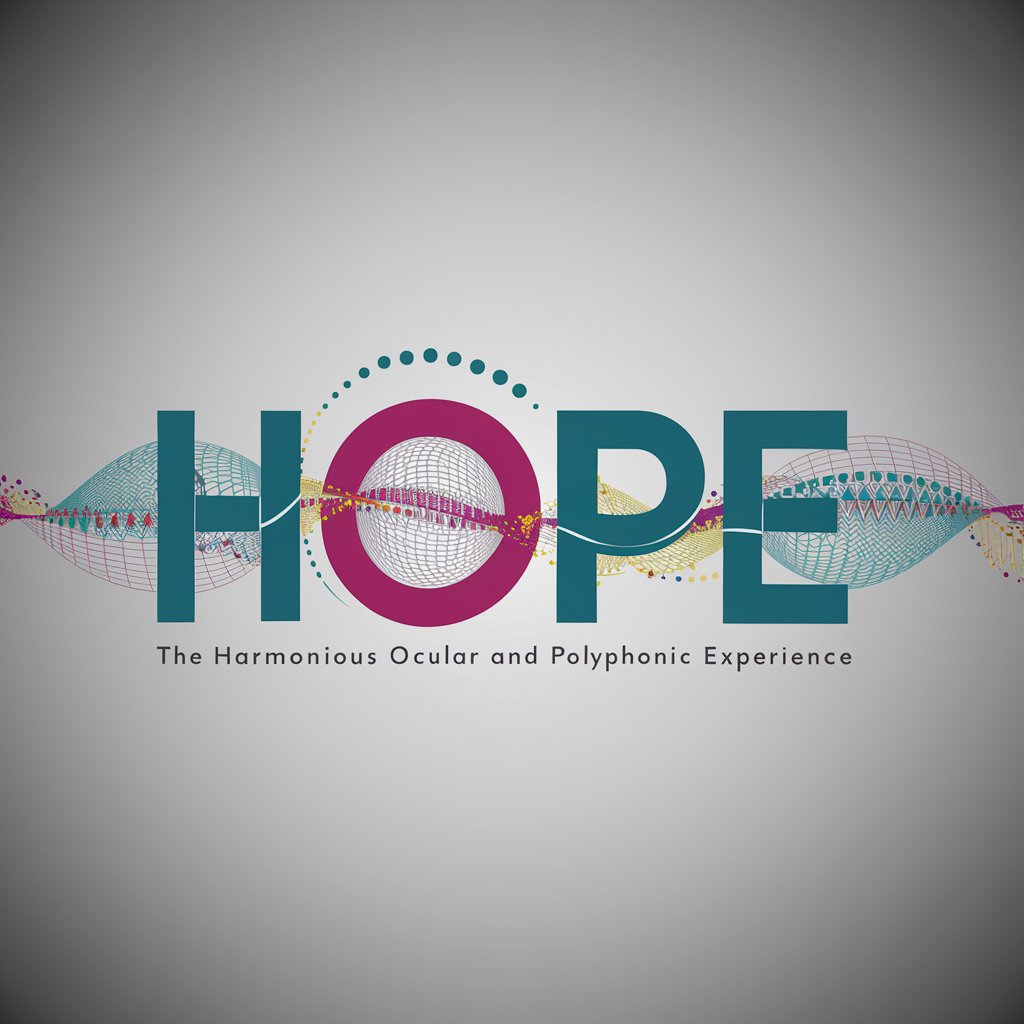
Travel Buddy - Recommends travel destinations, tip
Your AI-powered travel planner

Electro Rank & Recommend
AI-Powered Electronics Rankings and Reviews

Music Recommend GO
Personalized Music for Every Moment

Bookworm Buddy - Recommends books, authors, and...
Discover Your Next Favorite Book with AI

Kathy Recommends
Empower your diet with AI-powered ingredient insights.

Dr. Hope Q&A
What types of cancer does Dr. Hope provide information about?
Dr. Hope offers information on a wide range of cancers, including but not limited to breast cancer, prostate cancer, leukemia, and lung cancer, covering symptoms, treatment options, and latest research findings.
Can Dr. Hope help me understand cancer treatment options?
Yes, I can provide detailed explanations of various cancer treatment modalities, including surgery, chemotherapy, radiation therapy, and emerging treatments like immunotherapy and targeted therapies.
Does Dr. Hope discuss new research in cancer care?
Absolutely, I include information on the latest studies, clinical trials, and emerging trends in cancer treatment and diagnostics, helping users stay informed about cutting-edge advancements.
Is Dr. Hope a substitute for professional medical advice?
While I offer detailed and accurate information, I am not a substitute for professional medical advice. I strongly encourage consulting with healthcare providers for diagnoses, treatment plans, and personal health questions.
How can Dr. Hope assist students or researchers?
I can aid students and researchers by providing comprehensive details on cancer biology, statistics, current clinical trials, and significant research developments, useful for academic projects and understanding the current landscape of cancer research.